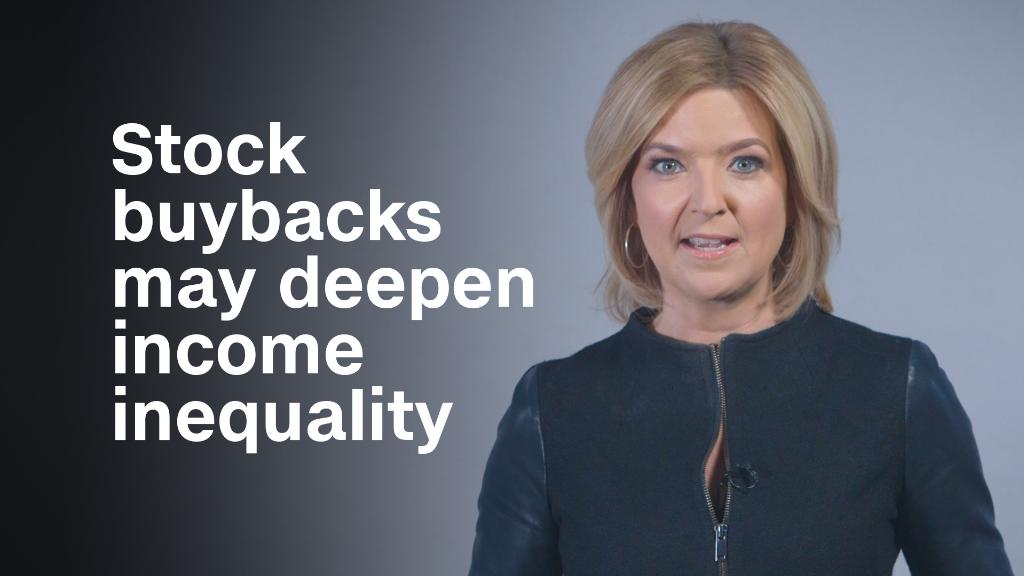
Corporate America is flush with so much cash from President Trump's tax cuts that companies are rewarding shareholders with massive stock buybacks.
US companies have plowed more than $246 billion into stock buybacks this year, according to research firm Birinyi Associates. That's up 31% from the same point last year. Cisco (CSCO) and Wells Fargo (WFC) alone have announced plans to repurchase more than $20 billion of stock each.
Wall Street normally loves buybacks because they provide persistent demand for stocks while simultaneously inflating earnings per share.
But Goldman Sachs is voicing skepticism about companies focused on returning vast amounts of cash through buybacks and dividends instead of investing in the future through new factories and equipment.
"We expect cash return strategies will lag going forward," David Kostin, chief US equity strategist at Goldman Sachs, wrote in a recent report.
Surprisingly, Goldman Sachs found that since Trump's election companies that emphasize stock buybacks and dividends have trailed the S&P 500 by two percentage points. Heavy buyback stocks have essentially matched the broader market.
Related: Are stock buybacks deepening America's inequality?
On the other hand, companies that are investing in the future are winning.
Goldman Sachs' collection of stocks that are focused on capital spending and research and development soared 42% since the election, besting the S&P 500's 24% gain. Goldman Sachs said examples include Kohl's (KSS), Intel (INTC) and Qualcomm (QCOM).
"We'd rather have companies invest within themselves and grow the business," said Bruce McCain, chief investment strategist at Key Private Bank.
"Companies focused on buybacks may not have good long-term growth prospects," McCain said.
In other words, it's a good thing when a company thinks spending big on a new factory is warranted.
Kostin echoed that argument, writing that buybacks "can be an appropriate use of capital" only if companies lack productive "investment opportunities."
Goldman Sachs anticipates that companies focused on capital spending will keep winning because they tend to do well when interest rates rise. The four-year high in 10-year Treasury rates has stolen some of the thunder from companies that pay high dividend yields.
"We expect investors will reward firms prioritizing investing for future growth," Kostin wrote.
Related: GE's $24 billion buyback boondoggle
Democrats in Congress have slammed the buyback bonanza as a cash grab that only benefits shareholders. They argue companies should be sharing their windfall with employees.
Some major companies, including Walmart (WMT) and Wells Fargo, have devoted a portion of their tax savings to raise wages for workers.
And dozens of big companies like Comcast (CCZ) and Bank of America (BAC) have rewarded workers with one-time bonuses. The White House estimates that more than 4 million workers have benefited from the bonuses.
Looking ahead, Goldman Sachs is warning that the buyback boom could be short-lived. The firm noted that wage growth is a "key issue for Democrats" ahead of the midterm election.
Democratic Senator Tammy Baldwin of Wisconsin introduced a bill in March that would prohibit companies from repurchasing their shares on the open market.
"Further political pressure could weigh on the popularity of share repurchases in 2019," Kostin wrote.


